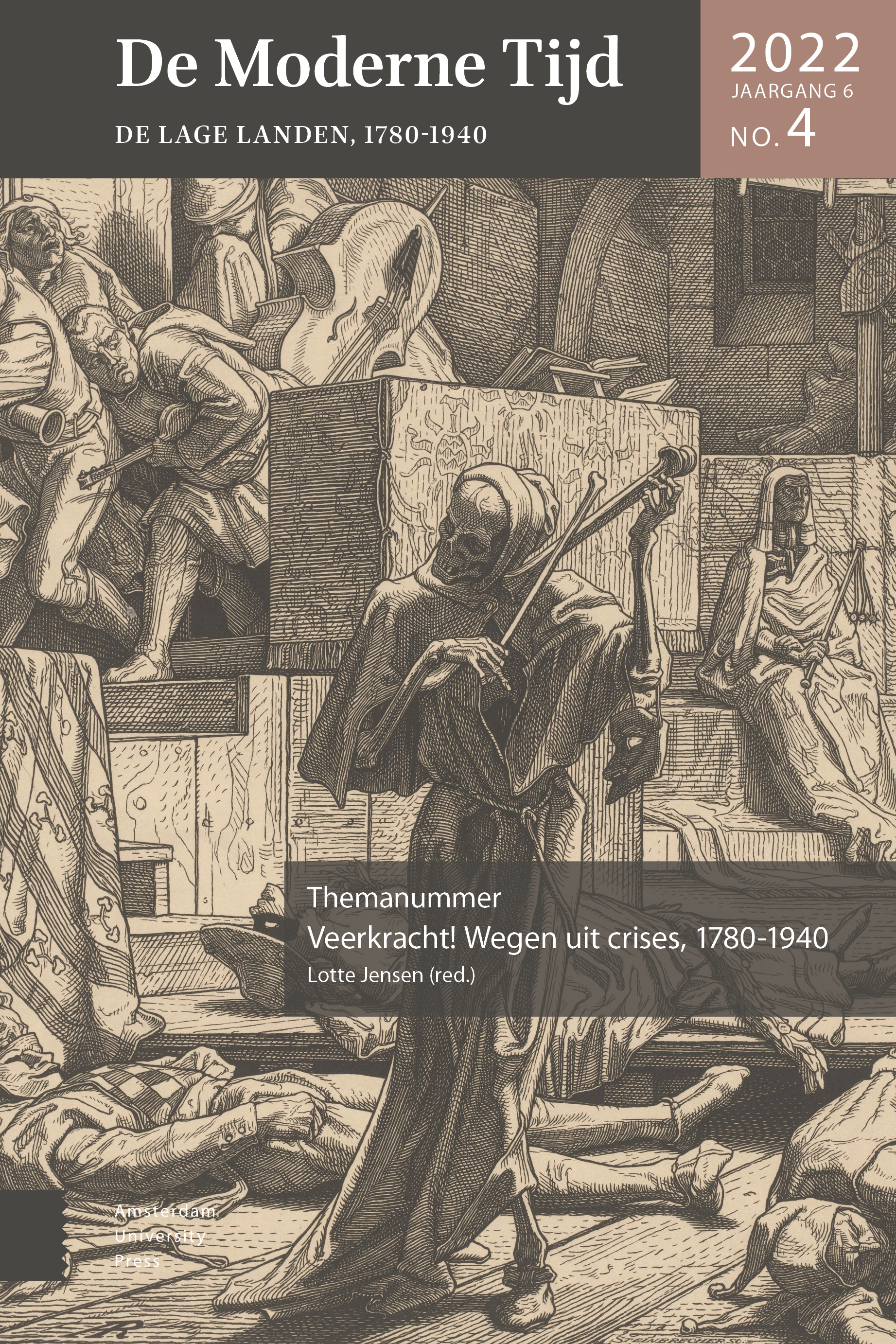-
oa ‘Dat een ieder zich beijvert zijn zwakke krachten in te spannen’
Veerkracht en cholera in de negentiende eeuw
- Amsterdam University Press
- Source: De Moderne Tijd, Volume 6, Issue 4, Dec 2022, p. 272 - 298
-
- 01 Dec 2022
Abstract
‘That each one endeavors to exert his weak powers’. Resilience and Cholera in the nineteenth century
This paper applies the concept of resilience, as operationalized through the capacity to learn, strategize and implement lessons after crises, to the situation in the city of Utrecht during and after the three major cholera epidemics that raged through Europe. It examines and discusses the learning capacities in the city, within the corridors of power and in society itself. Did the Utrecht residents learn from the crisis, were they resilient? The cholera epidemics were clearly distinguishable and identifiable pandemics, spawned a flood of discussions and arguments, led to the first major international sanitary conferences, and, throughout the 19th century, triggered medical-scientific and social-administrative paradigm shifts. The article follows these debates and the ensuing attempts to translate findings into measures on a local level, thus highlighting how the transboundary scope of a pandemic played out on the micro level of a city.


